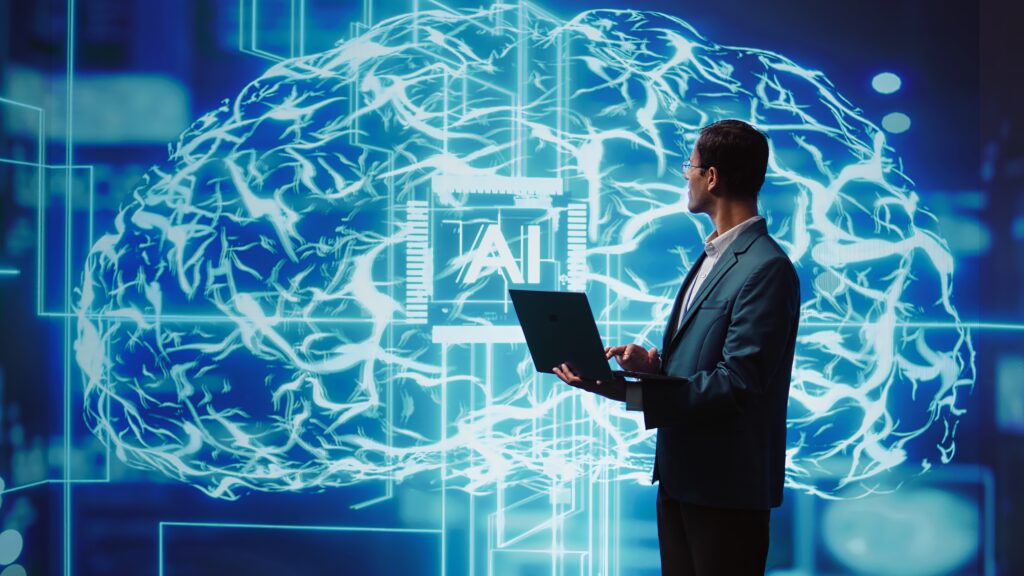Generative AI Takes the Lead: ChatGPT, Google Gemini, and the Future of Industry Innovation


Artificial Intelligence has evolved from a supporting tool into a central driver of innovation across the global economy. Generative AI, in particular, is revolutionizing how businesses operate, solve problems, and interact with consumers. Technologies like ChatGPT and Google Gemini are leading this shift, enabling intelligent automation, dynamic content creation, and decision-making support in ways that were unimaginable just a few years ago.
ChatGPT Powers a Smarter Conversation
One of the most widely adopted tools in this movement is ChatGPT by OpenAI. Its ability to understand context and respond with human-like fluency has changed how businesses and individuals approach communication. Enterprises use ChatGPT to automate customer service, generate marketing copy, and even support software development through real-time coding assistance.
In the classroom, educators are integrating ChatGPT into lesson plans to support personalized learning. It helps students with writing tasks, offers language translation, and instantly explains complex topics. ChatGPT is a brainstorming partner for journalists and content creators that generates ideas, headlines, outlines, and even complete drafts in seconds.
The result is faster workflows, enhanced user satisfaction, and reduced pressure on human teams. Businesses that use ChatGPT are not just automating—they’re evolving the quality of their interactions.
Google Gemini’s Multimodal Advantage
While ChatGPT excels at text, Google Gemini expands the possibilities by processing and generating content across multiple data types—text, images, video, and audio. This multimodal AI system opens new doors for industries that rely on layered, complex information.
Healthcare providers benefit from Gemini’s capacity to analyze patient records alongside visual diagnostics such as X-rays or pathology slides. Architects and engineers use Gemini to combine sketches, blueprints, and technical specifications into coherent reports and simulations. In media production, the ability to translate a written idea into visual content or audio narration saves time and enhances creativity.
Because Gemini is integrated with Google’s product suite, users see AI-powered suggestions in Docs, Sheets, and Slides. From completing reports to recommending visuals and summarizing key points, Gemini turns routine tasks into intelligent interactions. Its seamless blending of modalities creates a more intuitive user experience, especially in high-demand professional settings.
Creativity Reimagined with Generative AI
Creative industries are embracing generative AI as a collaborator, not a competitor. Artists, filmmakers, musicians, and designers are experimenting with these tools to extend their reach and refine their process. Generative AI platforms can create art, draft scripts, design logos, and compose music tailored to specific styles or emotions.
In advertising, campaigns are launched with AI-generated visuals and text customized for various markets and demographics. Video game developers use generative AI to design environments, populate storylines, and dynamically generate dialogue for more immersive gameplay. Even in literature, AI tools help authors plot stories, edit prose, and explore new narrative styles.
This creative empowerment allows professionals to iterate faster and experiment more freely. Rather than replace human vision, generative AI enhances it by offering instant feedback, endless variation, and data-informed suggestions. It’s an evolution of creativity, where imagination meets computation.
Enterprise Transformation with Data-Driven AI
In the corporate world, generative AI transforms how decisions are made and strategies are implemented. AI-driven analysis identifies trends, reduces costs, and improves accuracy in everything from marketing to logistics. It’s no longer about gut instinct alone—data-powered AI gives companies a clearer picture of market behavior and operational performance.
Financial institutions leverage generative AI for real-time fraud detection, compliance automation, and investment strategy development. Insurance companies use it to analyze claims, generate policy documents, and assess risk faster. AI effectively supports route planning, inventory management, and logistics delivery forecasting.
Retailers deploy AI to personalize product recommendations and automate promotions based on customer behavior. E-commerce platforms benefit from AI-generated product descriptions, dynamic pricing, and chatbot support.
The promise of AI isn’t just automation—it’s optimization. Businesses that adopt generative AI quickly adapt to change, identify new opportunities, and scale operations without sacrificing quality or customer satisfaction.
Ethical Considerations and the Road Ahead
As generative AI advances, ethical and regulatory issues become more prominent. Concerns about job displacement, misinformation, bias in training data, and intellectual property must be addressed with thoughtful policies and transparency. Businesses are responsible for using AI ethically and ensuring their tools serve human interests.
Training employees for an AI-enabled workplace is also critical. The rise of AI won’t eliminate jobs, but it will redefine many roles. Skills in AI collaboration, prompt crafting, critical thinking, and data interpretation will be essential for the future workforce.
We expect rapid improvements in AI’s accuracy, energy efficiency, and contextual understanding. Open-source models and public-private partnerships will continue to drive innovation, and legal frameworks will evolve to support responsible use.
Generative AI has already proven it can revolutionize industries by enhancing creativity, productivity, and strategy. As ChatGPT and Google Gemini continue to develop, their potential will expand across every sector of society. The future is not about machines replacing humans—it’s about working alongside us, helping us think bigger, move faster, and solve challenges more effectively than ever.
